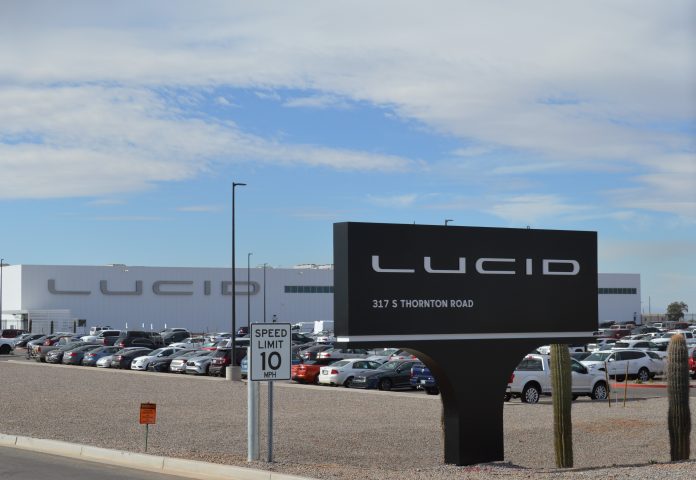Electric vehicle startup Lucid has revealed its production and delivery numbers for the second quarter as it prepares to take shareholder questions during the release of its financial results.
From April through June, the electric vehicle brand built 2,173 Lucid Air sedans at its Arizona factory, of which 1,404 were sold to customers. The company’s production output decreased slightly from Q1 when it made 2,314 units. Deliveries between the two periods were nearly identical, with a difference of only two vehicles. In its press release, the automaker noted that it had also begun shipping materials to Saudi Arabia, whose government has agreed to purchase up to 100,000 EVs from Lucid. The country’s Public Investment Fund is currently the car manufacturer’s majority stockholder.
Given the company’s stable performance over the quarter, its financial results are unlikely to surprise investors when they are released on August 7th. This is not to say that shareholders will feel any more assured of the brand’s longevity than they were in Q1, however. Like other newcomers to the electric vehicle segment, Lucid has struggled to capitalize on the niche market. However, its challenges may have less to do with its status as a startup and more with the result of slow-moving demand.
While automotive sales improved in the second quarter, electric vehicle growth stagnated for major brands such as General Motors. Even Tesla, which easily defended its position as the market’s top player, failed to meet its delivery target for the period. Consumers are interested in buying EVs but continue to be off-put by technological limitations, missing infrastructure and high prices. As a fledgling luxury car manufacturer, Lucid, along with Rivian and Polestar, is poorly situated to overcome these obstacles. That will require substantial effort from the automotive industry, along with time. The question for EV startups is whether they can last for the duration of the transition.




